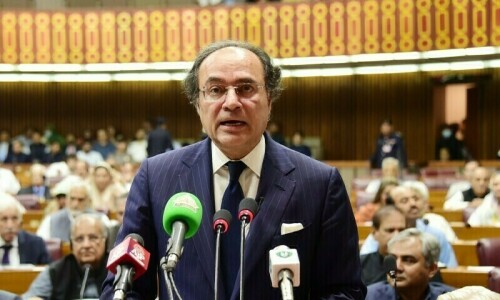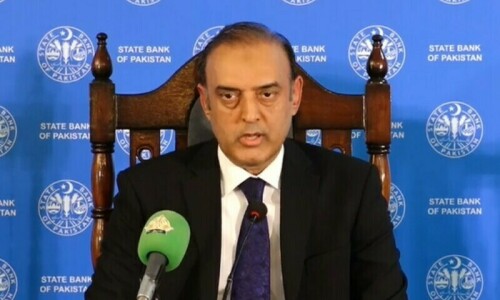WASHINGTON, Aug 3: US Secretary of State Condoleezza Rice has said that only a combination US and Pakistani powers can improve the situation in Fata, where the militants appear to have gained an upper hand.
“It’s going to take all elements of Pakistan’s power, national power, as well as some of ours, to improve that situation,” said Ms Rice while talking to Aspen Institute President and CEO Walter Isaacson, in Colorado, Aspen. “It’s a dangerous situation.”
A transcript released by the State Department on Sunday also quotes Ms Rice as saying that Pakistan’s effort to engage the militants had failed.
“I’m not going to comment on the intelligence reports,” said Ms Rice when Mr Isaacson asked her to comment on US intelligence reports of Pakistani spy agencies cooperating with Taliban militias in Afghanistan.
“Let me just say that, obviously, the situation on that border and in the region -- the Federally Administered Tribal Areas -- has got to improve. It has got to improve and it’s got to improve quickly.”
Ms Rice warned that Fata had become a dangerous region, “a region where efforts to forge peace agreements with the militants, I think, are frankly not working. And instead, the militants are finding a place that they can train and equip.”
She reminded the Pakistanis that the militants hiding in Fata were not just a danger to Afghanistan.
“They are a tremendous danger to Pakistan. The Baitullah Mehsud organisation, which is widely understood to have been behind the assassination of Benazir Bhutto, is believed to operate there.”
Ms Rice said it’s extremely important for Pakistan to do something to improve the situation or it would destabilise the entire region.
Also on Sunday, a Pakistani official privy to US-Pakistan talks during Prime Minister Yousuf Raza Gilani’s visit, confirmed US media reports that Islamabad was sending a commando unit and more army troops to Fata.
“The US has asked for using commandos and regular troops they say they have trained for the purpose,” the official said.
“Americans say the Frontier Corps is not working and considering the SSG commandos were trained to fight terrorism, they should be deployed.”
According to these reports, Pakistan wants to deploy a specially-trained unit of its Special Service Group into the tribal areas.
Pakistan’s military has told the Pentagon that it is planning to move a major unit of its regular army into Fata. And senior Pakistani officials have proposed a plan in which the intelligence services between Pakistan and the US would work to end the conflict between the spies and informants that each uses in the tribal areas and who have often been working against each other.The Los Angeles Times has said in a report that US officials have accused Pakistan’s top spy agency, Inter-Services Intelligence, of assisting terrorists linked to anti-western activities, including the bombing last month of the Indian embassy in Kabul.
Pakistan, in turn, has criticised the CIA for cultivating assets in the region that it believes are against Islamabad’s interests.











































Dear visitor, the comments section is undergoing an overhaul and will return soon.